Everyone loves for their coffee to be made in a certain way. While everyone has their preferences, the water used in preparing this caffeine-rich beverage will determine how good it will taste. I’ve made coffee with every type of water and am set in how I prefer mine but let’s cover what type of water is the best to make your coffee with.
Read on to see how different types of water can affect the taste of your cup of coffee.
Why Water Quality Matters
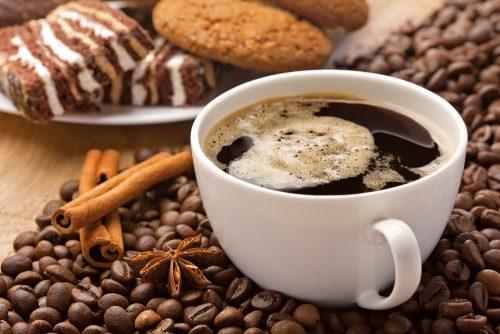
Coffee is 98% water and the tap water you use at home is often laden with impurities that affect the taste of coffee.
Hard water, water with high mineral content, contains calcium, magnesium, and other minerals that not only affect the taste of your coffee but can also clog your coffee maker over time. Water that contains too many dissolved solids can also make your coffee taste bitter.
On the other hand, soft water, water with low mineral content, might not be suitable either, as it can make your coffee taste flat and lifeless.
So, what’s the solution? High-quality water! Let’s talk about what makes water high quality and optimal for the best cup of morning coffee!
What Makes High-Quality Water
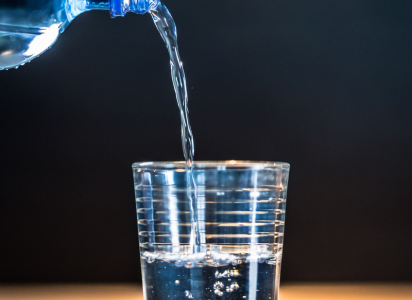
The ideal water for coffee should have a neutral pH level so it doesn’t skew the acidity or bitterness of coffee.
It should also have low to medium mineral content, fewer TDS (total dissolved solids), and be free of chlorine, fluoride, and other impurities.
Reverse osmosis water or filtered tap water is generally the best choice for brewing coffee, as it retains the right balance of minerals that contribute to good taste and aroma.
How to Measure Water Quality
You can conduct a simple at-home test to check your water’s TDS level. TDS refers to the total dissolved solids in water like magnesium, calcium, and sodium.
You can use a water quality monitor or a TDS meter to measure the TDS. A TDS level between 150-250 ppm (parts per million) is considered the ideal level for brewing coffee. Anything above that could affect the taste of coffee.
Other Considerations
If you use bottled water, make sure to check if there are any minerals or additives that might affect the taste of coffee.
Also, avoid distilled water for brewing coffee; it’s stripped of all minerals and contains a flat taste. Lastly, if you live in an area with extreme water conditions such as very high or low TDS, you might consider using a filtration system or bottled water to achieve the best taste.
Do You Use Distilled or Spring Water for Coffee?
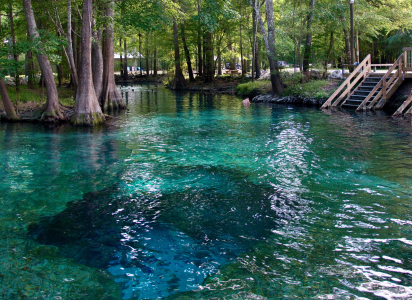
Distilled water should not be used for making coffee because it has been stripped of all minerals and contains a flat taste. Instead, you should use reverse osmosis water or filtered tap water as these retain the right balance of minerals that contribute to good taste and aroma.
Depending on your area and water condition, you may also consider using bottled water if necessary. I prefer bottled water but my budget doesn’t always allow me to make my coffee with bottled water so I go between filtered water and bottled water.
Should I Use Filtered or Purified Water for Coffee?
Both are a great choice for making coffee as they retain the right balance of minerals that contribute to good taste and aroma.
Filtered tap water generally has a neutral pH level, low to medium mineral content, fewer TDS (total dissolved solids), and is free of chlorine, fluoride, and other impurities.
If your area has extreme water conditions such as high or low TDS, you might consider using a filtration system or bottled water to achieve the best taste.
Is it OK to Use Distilled Water for Coffee?
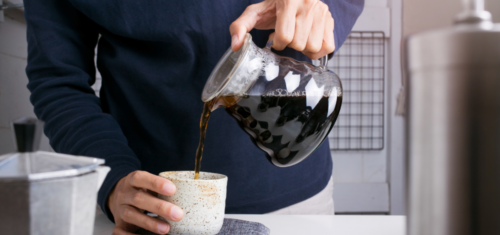
No, it is not recommended to use distilled water for making coffee as it has been stripped of all minerals and contains a flat taste. Instead, you should use reverse osmosis water or filtered tap water as these retain the right balance of minerals that contribute to good taste and aroma.
Is it OK to Use Bottled Water in Coffee Machine?
Yes, bottled water can be used in a coffee machine as long as it does not contain any minerals or additives that might affect the taste of coffee.
What Water Does Starbucks Use for Coffee?
Starbucks uses filtered water for brewing their coffee. They use a combination of reverse osmosis and charcoal filtration to ensure that the water they use meets their standards for quality and flavor.
Why Does Keurig Recommend Not Using Distilled Water?
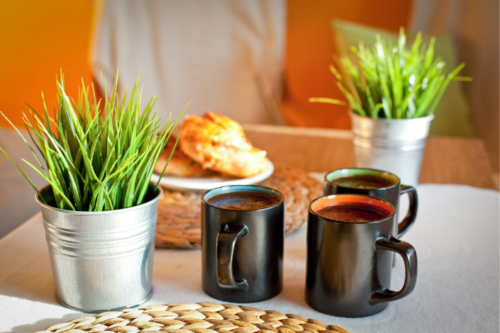
Keurig does not recommend using distilled water for their coffee makers because it has been stripped of all minerals and contains a flat taste.
This can lead to an unpleasant flavor in the coffee, as well as damage the machine over time due to low mineral content. Instead, they recommend filtered tap water or bottled water to achieve the best taste.
The Best Water For Brewing Coffee
With so many sources of water to use in your kitchen, it is difficult to tell which one makes better coffee over the other. Water not only determines the taste but it will change the concentration of the coffee and the process of making it.
Water with mineral content is the best for making coffee; however, the concentration should be modest, not too high or too low. The minerals add a pleasant taste to the coffee, so the best water to use is hard water, but it should definitely be filtered.
In order to attain your preferred taste, it is good to have your regular brand of coffee with you, know the process of making it, and of course, have a quality coffee maker.
The temperature of the water that you use to make your coffee with will also play a role in enriching your favorite beverage. This is important, regardless of the type of water you choose to use.
Cold water gives you a flat taste, and if it’s too hot, it will make the flavor of coffee disappear. You should also use the proper amount of water to avoid under-extracting or over-extracting.